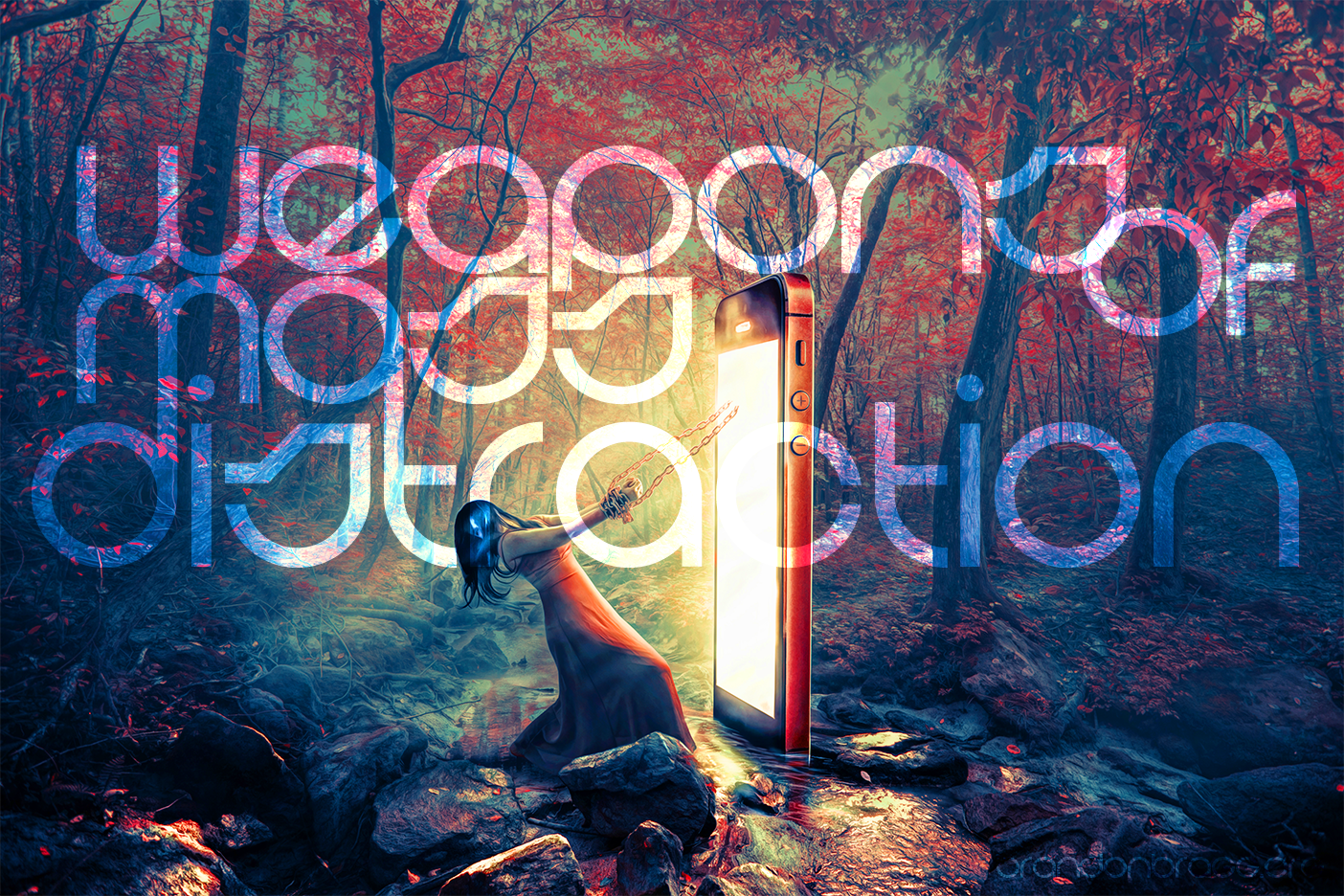Weapons of Mass Distraction
“For we dare not class ourselves or compare ourselves with those who commend themselves. But they, measuring themselves by themselves, and comparing themselves among themselves, are not wise” (2 Corinthians 10:12). “For they loved the praise of men more than the praise of God” (John 12:43).
Introduction
When I first wrote this article, I could not have known that God was preparing me to participate on an advanced team that is developing the future of technology. Some of the brightest minds in the country have come together to build the infrastructure for the Fifth Industrial Revolution, which will encompass the harmonious collaboration of human and artificial intelligence, big data, supply chain technology, the internet of things, (stable) digital currencies, universal basic income, and extended reality.
At times, it feels as if I am bearing witness to a great beast that has been loosed into the world but is still in its infancy. This begs the question – if a powerful beast is to be born into this world by the hands of man and there is nothing that I can do to prevent its inception, formation, and growth, and yet it is within my power to act as an influence for its potential, limitations, and boundaries, should I participate in its upbringing? I cannot help but think of the times in scripture when the children of God served under wicked kings, who did wicked things, and yet remained faithful and obedient to the Lord, and in so doing, accomplished the will of our Heavenly Father.
Soon, emerging technologies will be the source of prolific distractions, the likes of which the world has never seen. As I am one of many who stand in the gap, I feel a weight, much like what I can imagine our founding fathers faced when tasked with influencing the potential, limitations, and boundaries of this great nation. Through it all, I fix my eyes on Jesus, the author and finisher of my faith.
My Mind-Altering Experience with Social Media
My Mind-Altering Experience
with Social Media
For years, my friends and family asked me, “Brandon, why aren’t you on Facebook or other social media platforms?” The answer was simple: Social media outlets, and specifically Facebook, were limiting my capacity to fully pursue my God-given dreams. I felt distracted.
In the Summer of 2014, I married my best friend, Erin. On our wedding night, we both deactivated from all social media outlets. We remained “off the grid” for seven years. We discussed our plan for months leading up to our wedding day. I’m so glad that we shared the same vision. For the first three weeks, we experienced some withdrawal symptoms, but then something amazing happened. I reclaimed part of my brain. I am convinced that disconnecting from social media led to an increase in my capacity, empathy, productivity, and overall quality of life. Challenges that previously seemed insurmountable became much easier. In fact, only one month after unplugging, my wife and I started our first business together, fulfilling our mutual dream of becoming full-time inventors.
Long before researchers concluded that Facebook and other social media outlets were highly addictive and could lead to mental, social, and personality disorders, I kept having dreams that a specific part of my brain was being partitioned and reconditioned outside of my control. While awake, it felt like that part of my brain was overactive and draining my capacity to problem-solve. To this day, I can still point to the specific area of my brain where I felt those changes occurring.
In more current news, Facebook has come under scrutiny for a plethora of alleged privacy rights violations and subversive methodologies in purposefully designing their platform to trigger chemical reactions in the brain. Researchers have discovered that these chemical reactions and the dependencies they create, in many cases, were identical to those experienced in individuals addicted to gambling and drug use. While some addictions may seem justifiable, I consider what Dr. Andrew Huberman, a Stanford neuroscientist said on the subject: “Addiction is a progressive narrowing of the things that bring you pleasure.” Facebook has an entire department dedicated to testing, tracking, and increasing the addictive nature of its platform.
Facebook, along with several other Fortune 100 companies, are now experimenting with implantable biotechnology for mind control. The emerging technology will allow users to connect through an interface and project words and other actionable thoughts through an avatar. Although this may sound convenient, the submergent experience would require users to surrender their brain activity for constant monitoring and data collection through an implantable device in the brain. My concern is not about the potential for data output, but rather, the potential for data input.
Much like a spiritual gift, technology can be used as a powerful and productive tool. However, through perversion, it can be used as a weapon of mass distraction. Our challenge is to determine whether we will use the gifts we have been given for eternal investments or temporary distractions.
7 Strategies for Overcoming Distractions
Start Each Day with Empowered Purpose
Data trends suggest that most people reach for their phone or tablet as soon as they wake up in the morning. However, studies have shown that scrolling through social feeds in the morning conditions the brain to become dependent on the release of dopamine through similar distractions. Over time, this habitual behavior leads to measurable reductions in performance and self-reported happiness. Similarly, viewing screens right before bedtime has been shown to reduce quality of sleep and often leads to depression and anxiety.
So, when you wake up tomorrow morning, instead of reaching for the phone, reach for the Throne. The Word of God is powerful and effective and is a restorer of the mind, will and emotions. Breaking a habit can be very difficult, but the rewards (of winning) far outweigh the risks (of losing).
Try reading a chapter from Psalms or Proverbs instead of a post on Facebook, which is here today and gone tomorrow. Try listening to praise and worship music in the shower or while making breakfast. Try declaring, “This is the day the Lord has made; I will rejoice and be glad in it” (Psalm 118:24). I guarantee you will experience results, because God guarantees you will experience results when you take Him at His Word (Isaiah 55:11).
Stop Multitasking
Cognitive scientists have concluded that “multitasking” is a misnomer. Attempting to multitask lowers efficiency by as much as 40%. In addition, it takes the average person 15-20 minutes to re-orient to a primary task after a distraction. Multitasking has been shown to reduce long-term memory and the ability for creative thought.
Alternatively, focus on your primary task. If your attention begins to digress, find a good stopping place, and make a note for yourself if necessary. Then, switch to a new task and give that your full attention for as long as you can. Before you begin a task, consider which types of interruptions are acceptable and which ones are not.
Write Down Your Top Three Goals Each Day
A common saying among successful entrepreneurs is, “A goal that is not written down is nothing more than a wish.” Each day, make a list of the three most important things you want to accomplish. Write them down and put them in a place you will see them throughout the day. A limited number of daily goals will help you work with greater intention and feel less distracted. As a bonus tip, try writing your top three goals for the next day before going to bed. Studies have shown that your subconscious will give you a head start in working toward those goals while you are asleep.
Give Yourself a Deadline
Parkinson’s Law states, “Work tends to expand to fill the time we have available for its completion.” Because of this phenomenon, we tend to fill any remaining time with distractions. However, when faced with a deadline, we develop laser focus while intentionally avoiding those distractions.
Use The Pomodoro Technique
According to a Harvard study, most people spend nearly 50 percent of their waking hours thinking about something other than what they are supposed to do. Invented in the early 1990’s by entrepreneur and author, Francesco Cirillo, the Pomodoro technique is a method by which one can train their brain to focus for longer periods of time. To use this simple and effective technique, set a timer for 45 minutes while completely focusing on a task. Then, set the timer for a 15-minute break and fill that time with your distraction of choice. If one-hour cycles are too difficult at first, try focusing for 25 minutes with a 5-minute break.
Here is a graph comparing the productivity levels of continuous work and the Pomodoro Technique.
Do Hard Things
The human brain is naturally inclined to focus on anything that is novel, pleasurable or threatening. Approaching tasks in one or more of these categories triggers a release of dopamine in the brain, which feels like a rewarding sense of accomplishment. If the tasks in which you engage daily are not challenging enough, perhaps it is time to take a step outside of your comfort zone.
Overcome When You Feel Overwhelmed
The right kind of pressure can be a powerful motivator, and in some cases, even form diamonds. However, stress is a form of worry, which is rooted in fear. If you feel overwhelmed, I would like to encourage you to check out Pastor Jentezen Franklin’s new book, Overcoming When You Feel Overwhelmed. In it, he offers practical, Biblical steps for confronting and overcoming fear, discouragement, depression and lust.
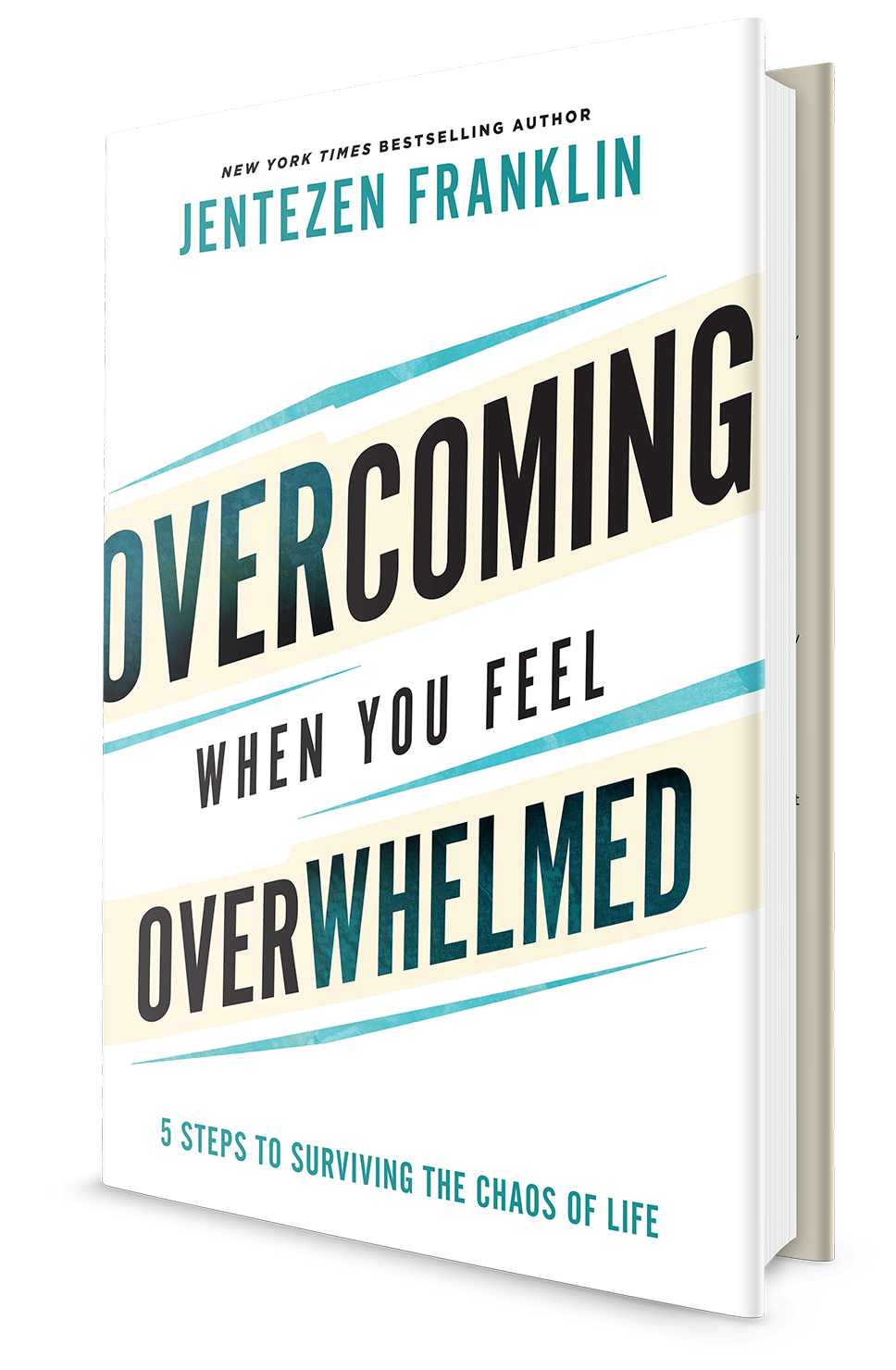
Jentezen Franklin
Presents
Overcoming When You Feel Overwhelmed
Jentezen pulls back the curtain on the enemy’s tactics to hinder your spiritual growth, distract your attention and keep you from living to your fullest potential during this critical season of prophetic history. If you find that every battle you’re fighting has gotten more difficult to conquer—if you are paralyzed and don’t know which way to go—remember God doesn’t call you just a survivor. He calls you an overcomer.
STATS, HATS & SPLATS
INSPIRED BY jENTEZEN FRANKLIN
Hover or click for action
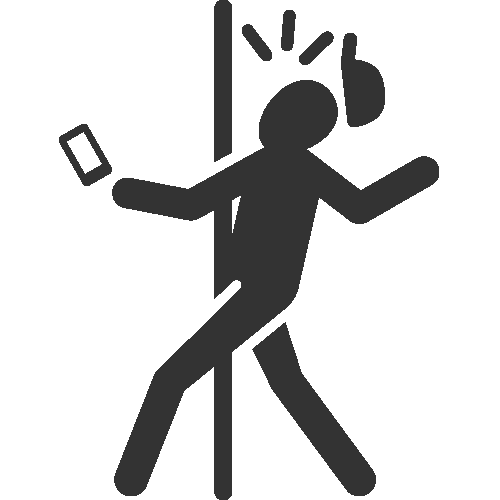
The average adult spends five hours each day on the internet.

The average teenager spends 9 hours each day on the internet.
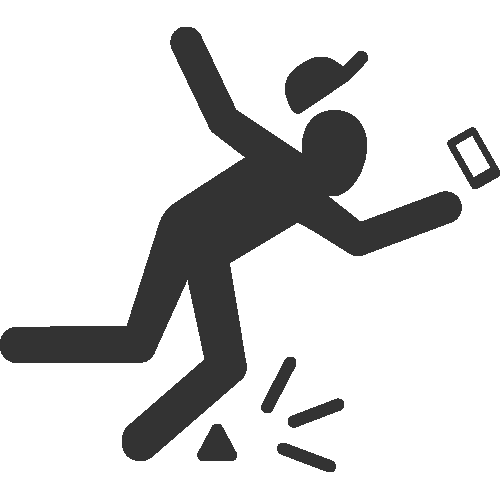
Distractions can be a stumbling block.
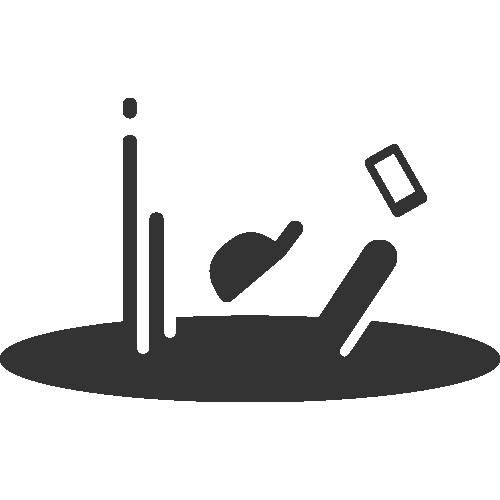
Lack of fellowship can lead to depression and anxiety.

1/4 of car accidents are caused by texting while driving.
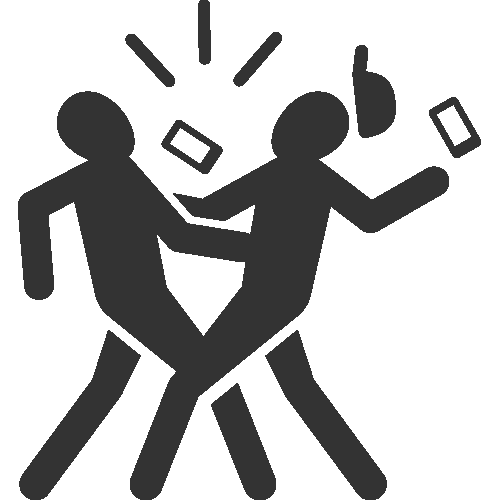
Distractions appose discipleship.
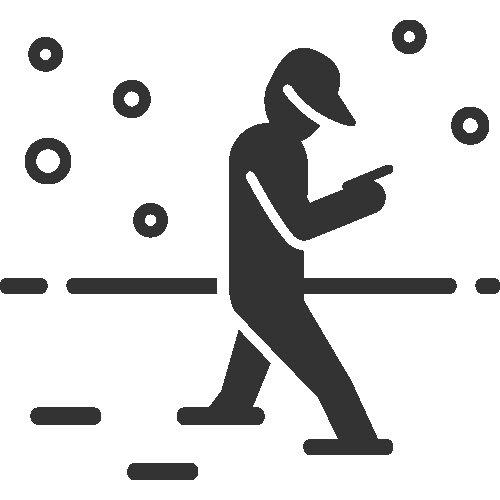
Emoji’s are not real emotions.

Distractions violate the soul (mind, will and emotions).

S.A.D.D. (Spiritual Attention Deficit Disorder)

“Liked”
but lonely

Focus on the eternal rather than the entertaining.

Distractions keep God, people and productivity at a distance.
Sources
- www.Biblehub.com
- Overcoming When You Feel Overwhelmed, Jentezen Franklin
- Harvard Business Review
- www.entrepreneur.com
- www.Lifehacker.com
